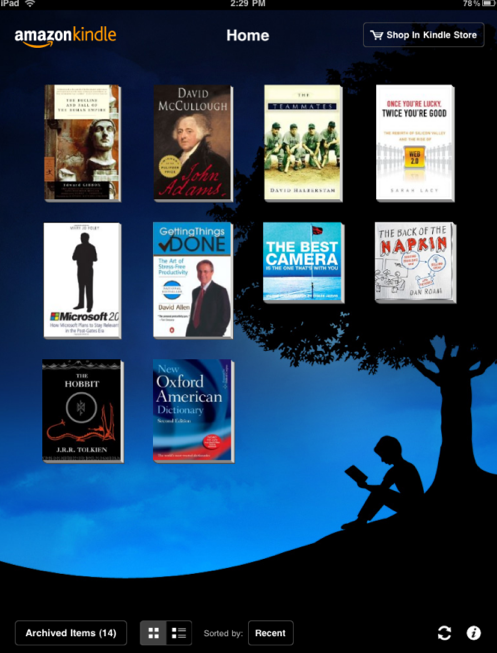Should I Self-Publish Through Kindle Singles?
 New platforms like Amazon’s Kindle Direct Publishing and Kindle Singles are great options for writers looking to self-publish their work. Pros: Amazon’s marketplace is huge which means your work could be seen (and easily purchased) by millions of people. The challenge is that the sheer number of books on Amazon can make it easy for your titles to get lost in the crowd.
New platforms like Amazon’s Kindle Direct Publishing and Kindle Singles are great options for writers looking to self-publish their work. Pros: Amazon’s marketplace is huge which means your work could be seen (and easily purchased) by millions of people. The challenge is that the sheer number of books on Amazon can make it easy for your titles to get lost in the crowd.
Right now I favor the Kindle Singles market where authors can publish shorter works—anything from business articles to personal memoirs. Authors get 70 percent of the revenue with Amazon getting the remaining 30 percent. This revenue model benefits both Amazon and the independent writer, but can be seen as a threat to publishers. Remember that writers traditionally receive about a 10 to 25 percent royalty while the publisher takes the rest of the revenue (after split with retailers like Amazon and Apple). This means that an author who negotiated a 15 percent royalty with a publisher for a book that sells for $9.99 on Amazon receives approximately $1.50 for each book sold. The publisher takes the majority of the revenue in exchange for services including substantive editing, copyediting, proofreading, page and cover design, sales, marketing and PR support. And with printed books publishing costs also include paper, binding, transportation, and warehouse services.
Publishers vet large numbers of book proposals each year and then take their chances on what they see as the best bets. Often only the top 10 to 20 percent of a publisher’s titles will yield 80 percent of their revenues. Once in a while a publisher will strike gold with a book like this year’s Hunger Games series (I love these books!), which makes up for the publisher’s other books that do not perform this year. Publishers may pay an author an advance on royalties for a book they plan to publish. This advance often is between $1,000 and $10,000 per book and means that they author doesn’t receive any additional royalties on book sales until the advance amount is recouped by the publisher. The advance rises according to past author performance and sometimes can be driven up by a bidding war between publishers for a book perceived to be “hot.”